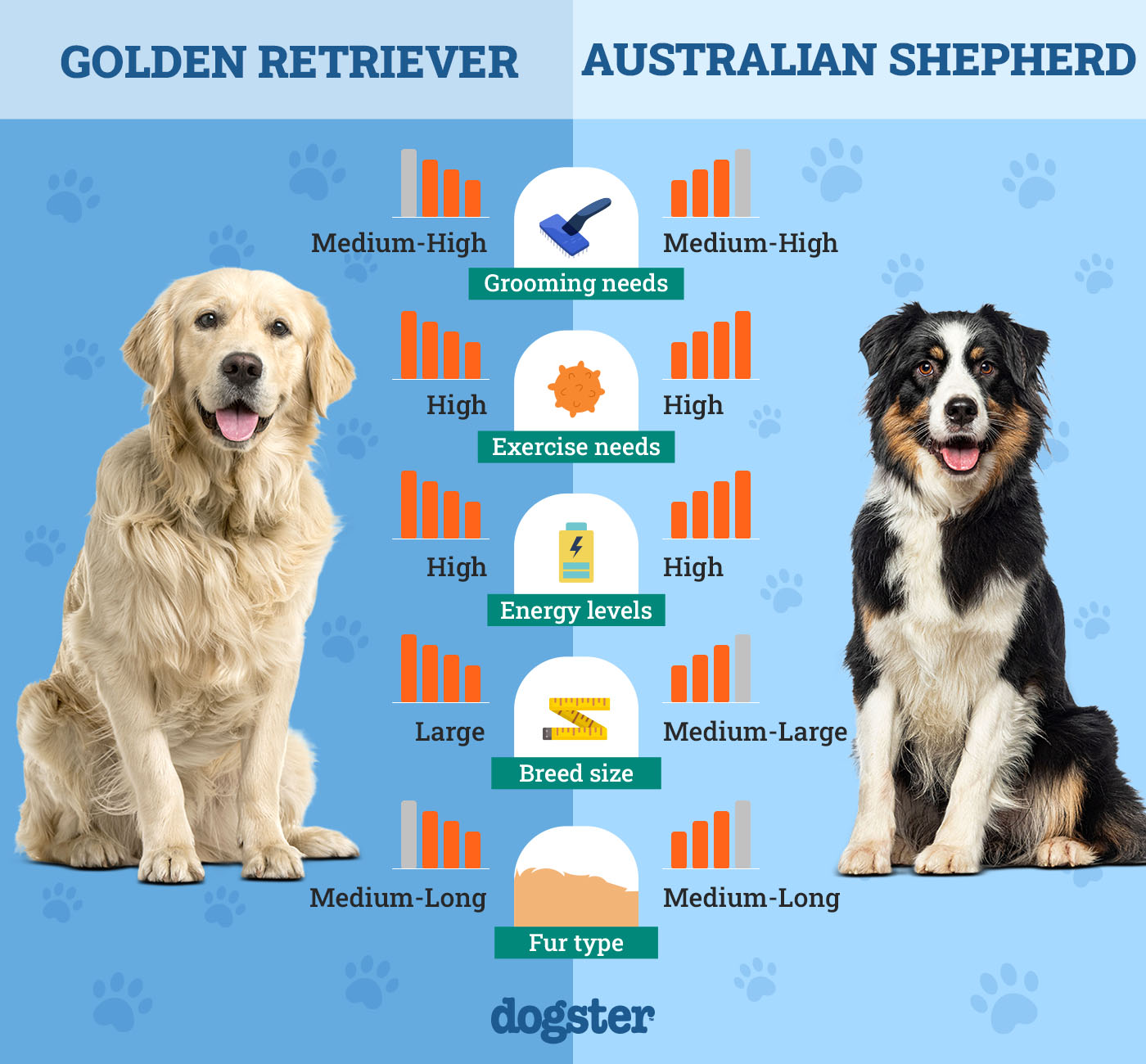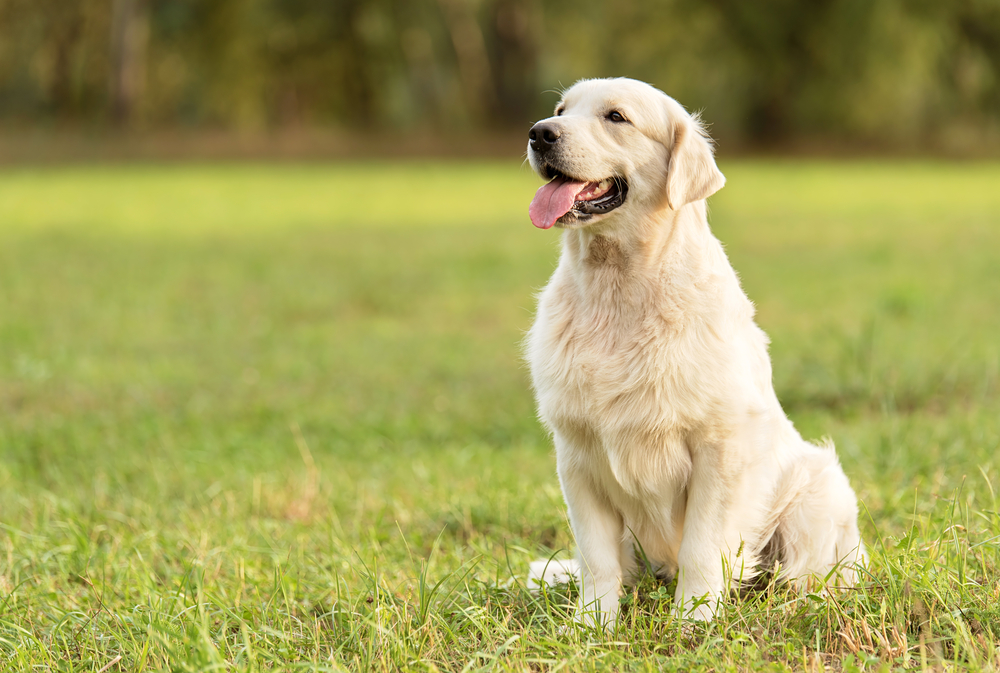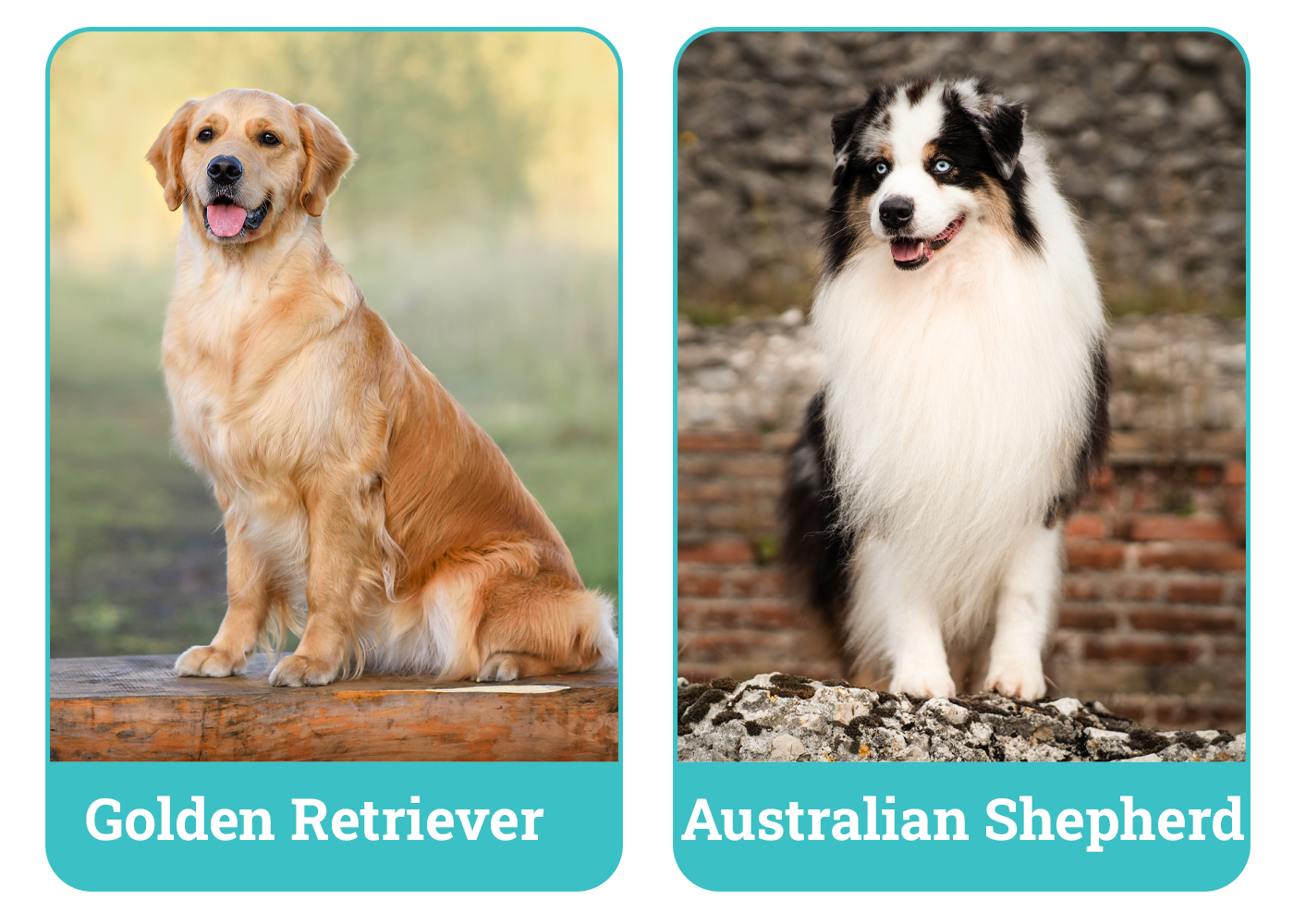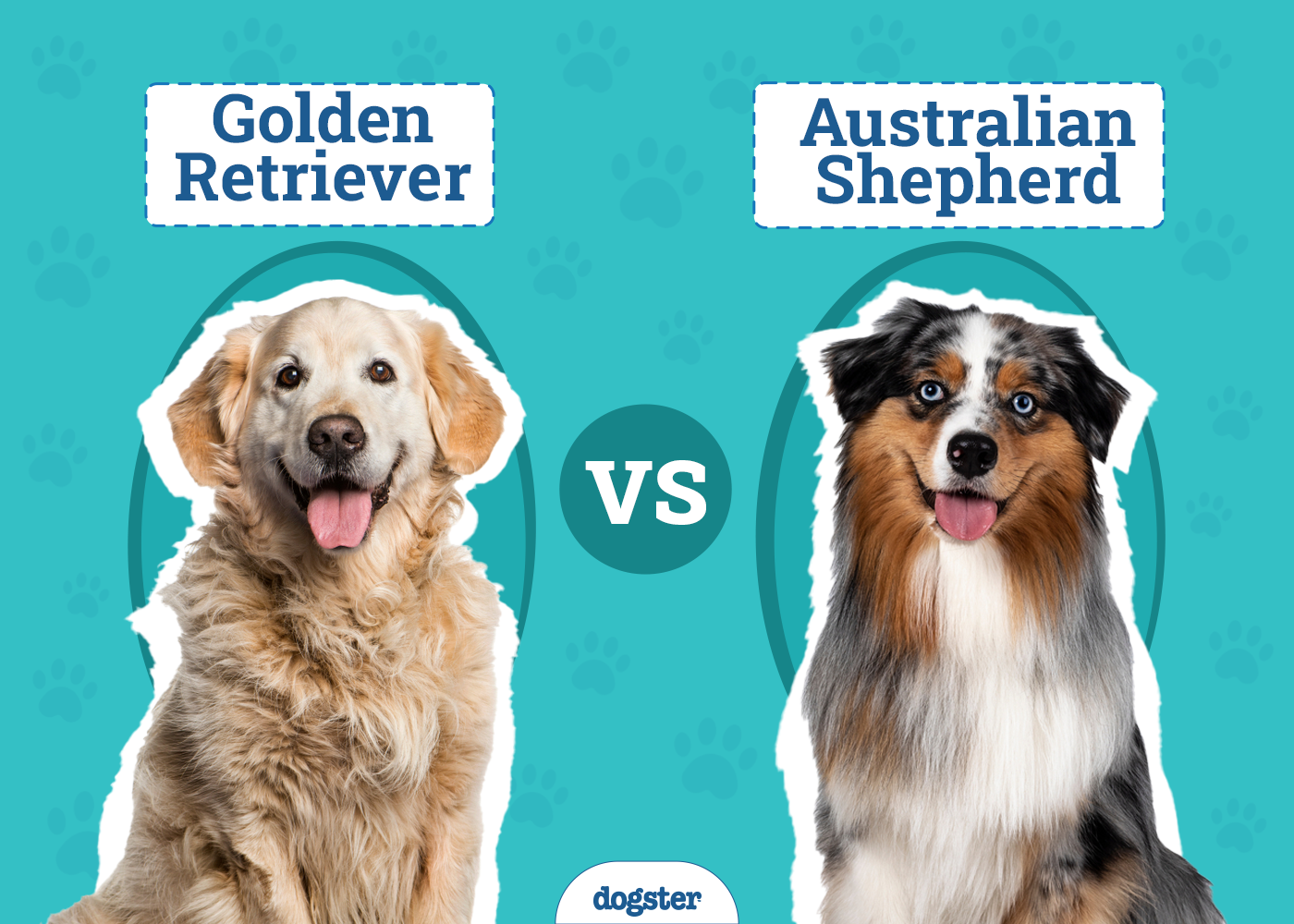In this article
Dog breeds come in a huge variety of shapes, colors, temperaments, grooming needs, and activity levels, but there are some dog breeds that are consistently extremely popular, seemingly regardless of what trends are occurring in the dog breed world. The Golden Retriever is definitely a perennially popular dog breed, while the Australian Shepherd, or Aussie, is consistently popular, but maybe less so than the Golden.
It can be difficult to choose between these two popular breeds, though. There are some notable distinctions between the breeds that can be the difference in whether or not they’re a suitable fit for your home. If you’re struggling to choose between these breeds, read on for more information.

Visual Differences

At a Glance
- Average height (adult): 20–24 inches
- Average weight (adult): 55–75 pounds
- Lifespan: 10–12 years
- Exercise: 1+ hours a day
- Grooming needs: Moderate
- Family-friendly: Yes
- Other pet-friendly: Usually
- Trainability: Intelligent, affectionate, people-oriented
- Average height (adult): 18–23 inches
- Average weight (adult): 35–70 pounds
- Lifespan: 13– 15 years
- Exercise: 1–2+ hours a day
- Grooming needs: Moderate
- Family-friendly: Yes
- Other pet-friendly: Usually
- Trainability: Intelligent, eager to please, instinct-driven

Golden Retriever Overview

Temperament
The Golden Retriever is a consistently favorite dog, and for good reason. This breed is extremely people-oriented, making them very suitable for a variety of home environments. They can be used as retrievers for hunting purposes, but Goldens are also just as likely to enjoy spending the afternoon on the couch being a couch potato with you.
The Golden is a loving dog that is often considered one of the most gentle breeds and is considered to be a great breed for homes with children, including small children. While it is still important to teach your children how to properly respect your dog’s boundaries, Goldens are far more patient with children than most other breeds.
Training
Due to their high intelligence and people-oriented nature, the Golden Retriever is often considered to be one of the easier breeds to train. They may retain some of the retrieving instincts that have been bred into them, but not all Goldens will participate in a game of fetch or retrieving in a hunting environment.
If your goal is to bring home a dog that will serve as a hunting companion, make sure your Golden’s lineage reflects hunting expertise.
Golden Retrievers are typically very motivated by food, which means that training can be a breeze with some of these dogs. For dogs that aren’t food motivated, toys are often a good motivator for this breed. When all else fails, the desire to please their people is a great motivator for the Golden Retriever.

Health & Care
Goldens are prone to certain types of cancers, as well as joint dysplasia in the hips, elbows, and knees. It’s important to ensure your Golden Retriever’s parents were fully health tested for all disorders common to the breed.
Proper health testing ensures the best health outcomes for offspring of the breedings, and it will give you the best chance at bringing home a dog that will be healthy and happy for many years to come.
Suitable For:
Golden Retrievers are suitable for homes with children of all ages, as well as homes that routinely have visitors. Due to their affection for people, Goldens are often loving and playful with visitors and strangers.
They are also usually gentle enough dogs for homes with fragile people and seniors who need a dog that will be gentle with them.

Australian Shepherd Overview

Temperament
Australian Shepherds, or Aussies, are known to bond closely with their people. They can be extremely protective of their people, which means they are not always suitable for homes with frequent visitors. Aussies are high-energy dogs that will begin to act out without proper exercise due to stress and boredom. They are loyal dogs that often aim to please, though.
Aussies were developed to be working dogs in herding situations, like on farms. This means that without proper exercise and with no job to do, they may become stressed and behave poorly. In some cases, Aussies may even develop separation anxiety that can become destructive.
This breed requires routine exercise and plenty of brain games to keep them entertained and free of stress.
Training
Due to their intelligence, Aussies are often quite trainable. They also contain strong instincts for herding, which makes them relatively easy to train for herding purposes. However, herding behaviors can sometimes be confused with aggression since they will sometimes nip at the heels of people and animals alike in an attempt to “herd” them. In some cases, this behavior occurs toward children and other animals in the home.
Early and consistent training is the best way to properly train your Aussie and reduce the risks of your dog developing problems like separation anxiety and bad behaviors. Aussies are sometimes food-motivated dogs, but their primary motivations are often associated with their desire to please their people and fulfill their instinctual urges.

Health & Care
Like the Golden Retriever, the Australian Shepherd is also prone to developing hip dysplasia, so proper testing of breeding pairs is necessary to keep these conditions from being continued in the breed.
They are also prone to epilepsy, which is a potentially life-threatening seizure disorder. For most dogs, epilepsy can be stabilized with routine medications, but it’s best for you to avoid bringing home a pup whose parents were tested for this type of disorder.
Suitable For:
Aussies can be a fantastic addition to active homes with lots of opportunities for daily activity. Hiking, jogging, and canine sports are all great options for entertaining your Aussie, along with puzzles, games, and even herding.
This breed is a great option for farms that may need the addition of a dog with a strong instinct to herd other animals. They will herd everything from ducks to cattle.

Which Breed Is Right for You?

Aussies and Goldens are both fantastic dog breeds that are suitable for a variety of homes. However, the Golden Retriever is a better option for most homes because they are a more laid-back breed with moderate activity and grooming needs.
Aussies, on the other hand, typically require far more exercise than Goldens. Without enough activity, they can become destructive and stressed. Puzzles, games, and training exercises are suitable for both breeds, though.
Both breeds are a nice addition to active homes, but Goldens are more likely to be gentle and loving to children and elderly people, while Aussies may be too rough and active for these people. With proper training and exercise, though, both dog breeds are perfectly trainable, and their intelligence and willingness to please their humans make them great options for homes that are dedicated to meeting their training and activity needs.
Featured Image Credit: Top – Burin P, Shutterstock | Bottom – JitkaP, Shutterstock





















